Working With or Serving Specific Groups (e.g., adult professionals, youth who are pregnant/parenting, students, clinic patients, LGBTQ+ youth, parents, etc.)
Notice: Undefined index: desc in /var/www/html/wp-content/themes/JointsWP-CSS-master/tag.php on line 36
Notice: Undefined index: asc in /var/www/html/wp-content/themes/JointsWP-CSS-master/tag.php on line 38
Sort By Date |
Sort By Title
Youth-Friendly Services Assessment Tool and Guide
June 17, 2019
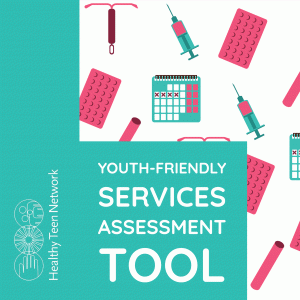
This resource includes an interactive tool, including a guide and complete bibliography, to help you assess if your clinic delivers services in a youth-friendly way. Offering youth-friendly services means that clinical services are provided in a way that makes it easy and comfortable for youth to seek out and receive the services they need. Key…
Read moreVolt20: 20 Questions to a Healthy Future
March 19, 2019
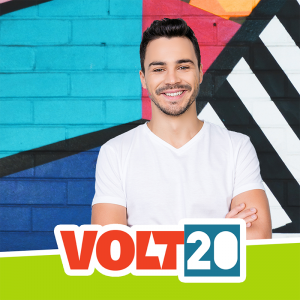
Crush (Research Brief)
May 31, 2018
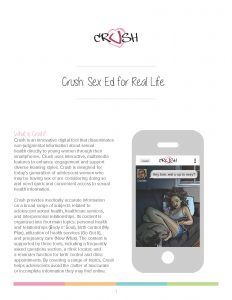
Crush shares sexual health information with adolescent women—anywhere, anytime. It is an innovative digital tool that empowers adolescent women by sharing on-demand access to comprehensive, medically accurate sexual health information. When Crush is paired with CrushTEXT (a series of multimedia texts that invites users to engage with Crush), it is proven effective at laying the…
Read moreCrush (Fact Sheet)
May 30, 2018
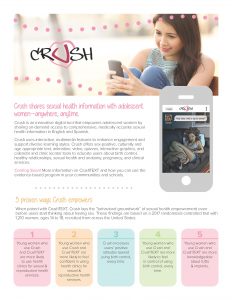
Crush shares sexual health information with adolescent women—anywhere, anytime. It is an innovative digital tool that empowers adolescent women by sharing on-demand access to comprehensive, medically accurate sexual health information. Read more in this two-page fact sheet (download below) about Crush, designed for a professional audience. See also, our website for professionals for learning more…
Read morePower Through Choices: Evidence of Success with System-Involved Youth
February 27, 2018

Guest Blog Post by Sharon Rodine & Janene Fluhr Research shows youth in foster care and juvenile justice systems are far more likely to become pregnant or get someone pregnant, compared to youth in the general population. System-involved youth have experienced chronic trauma, abuse/neglect, and family dysfunction; may face mental health and substance abuse challenges;…
Read moreGrowing Up LGBTQ+ Online: An Infographic
January 20, 2018
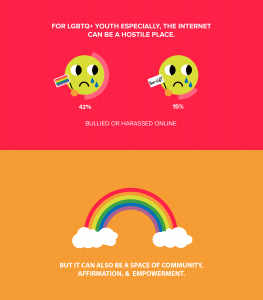
When approaching topics such as adolescent sexuality, technology, and social media, it is sometimes tempting for adults, even sexuality educators, to focus solely on the Internet Age’s harmful and problematic byproducts for adolescent development and sexuality. In fact, hardly a newsstand exists without glossy-paged headlines screaming for attention with the threats of cyber-bullying, sexting, and…
Read morePosition Statement: Ensuring Equity for Youth by Applying Gender Transformative Approaches
October 19, 2017
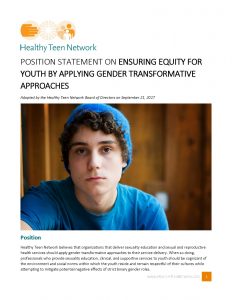
Healthy Teen Network believes that organizations that deliver sexuality education and sexual and reproductive health services should apply gender transformative approaches to their service delivery. When so doing, professionals who provide sexuality education, clinical, and supportive services to youth should be cognizant of the environment and social norms within which the youth reside and remain…
Read morePosition Statement: Ensuring Equity for Youth by Affirming Those Who Are LGBTQ+ or Gender Non-Conforming
October 6, 2017
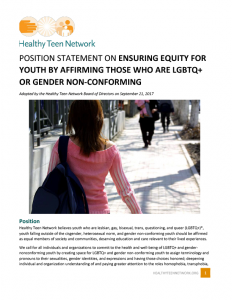
Healthy Teen Network believes youth who are lesbian, gay, bisexual, trans, questioning, and queer (LGBTQ+), youth falling outside of the cisgender, heterosexual norm, and gender non-conforming youth should be affirmed as equal members of society and communities, deserving education and care relevant to their lived experiences. Healthy Teen Network shares position statements on relevant issues…
Read morePosition Statement: Sexual & Reproductive Health Services for Immigrant Youth
October 5, 2017
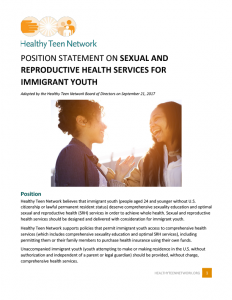
Healthy Teen Network believes that immigrant youth (people aged 24 and younger without U.S. citizenship or lawful permanent resident status) deserve comprehensive sexuality education and optimal sexual and reproductive health (SRH) services in order to achieve whole health. Sexual and reproductive health services should be designed and delivered with consideration for immigrant youth. Healthy Teen…
Read morePosition Statement: Ensuring Equity for Youth by Addressing the Intersectionality of Gender, Race, and Sexuality
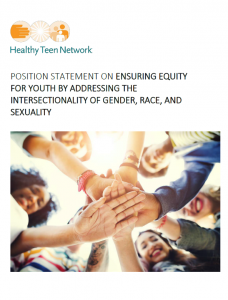
Healthy Teen Network believes that addressing social and ecological conditions unique to members of historically marginalized populations (such as people who are women, First Nation/Indigenous, African-American, Latinx, Asian Pacific Islander, and/or LGBTQ+) is critical for these populations to achieve justice and equitable health and well-being outcomes. Healthy Teen Network shares position statements on relevant issues…
Read more
